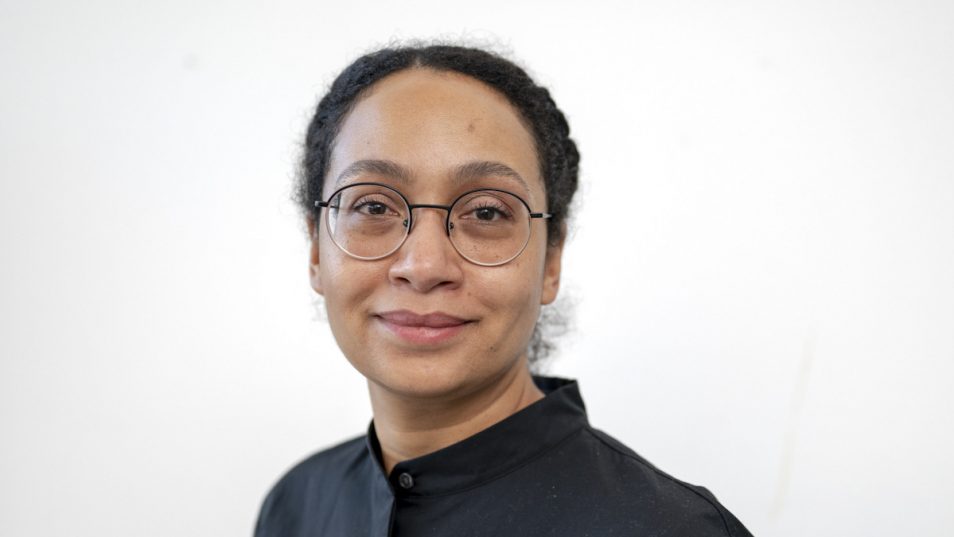Prof. Renée Tribble on the Planning and Implementation of Citizen Science Projects
 © Felix Schmale / TU Dortmund
© Felix Schmale / TU Dortmund
Prof. Dr. Renée Tribble conducts research on questions of participation and cooperative urban development at the Faculty of Spatial Planning, TU Dortmund University. Her approach is to involve civil society actors as early and comprehensively as possible in her projects. In an interview, she talks about the opportunities and challenges of research with citizen participation.
This interview was conducted by TU Dortmund University, not by the DWIH New York.
Prof. Tribble, what is your research focus on?
I am particularly interested in the cooperation of civil society and municipal actors in the face of the challenges posed by social and ecological change. We all know about the United Nations Sustainable Development Goals, but what does that mean in practice? For example, how can a city be transformed to become more sustainable or inclusive? I believe that this is only possible if all levels of society are involved. Another important aspect for me is practical knowledge in planning processes: How and by whom is it acquired, how is it passed on and what impact does it have on the processes themselves? This is a core of our discipline, but is often not the subject of the research projects themselves.
Many of your projects contain approaches from “Citizen Science” – what does that mean?
I associate the term with research at eye level with civil society. It’s about not only considering civil society actors as research subjects, but actively involving them in the process, ideally from the formulation of the research question to the results to the possible implementation and evaluation. How well or poorly this works depends, of course, on the research question and the perspective, from which methodological approaches then emerge. Citizen science is quite common, for example, in data collection or in the context of so-called living labs: real processes, actors or structures are investigated with regard to the research questions, but at the same time they are also influenced by the research process itself. This is because, in contrast to a classic laboratory, no experiments with the same experimental setup can be turned back to the starting point again and again. The necessary openness to results and flexibility sometimes makes it difficult to communicate such approaches to external experts. With participatory approaches, it is not always possible to precisely describe processes, workload, and methodological steps in advance. On the other hand, such approaches are in principle inherent to urban and spatial planning: our focus is on the everyday space of the people who live in it, and planning on paper also takes up real space and intervenes in it at some point.
What does it take to involve different groups with different interests in joint planning?
In my experience, it’s easiest if everyone agrees “to be against something”. It becomes more difficult with constructive conflict resolution approaches, especially when both different scientific disciplines and actors outside of research work together. This is often the case in urban and district development. If you are at least pursuing similar goals, that is of course good – then architects, artists and urban planners often work together in a participatory way. The challenges come when it comes to opening up to necessary freedom, time commitments and binding commitments – then suddenly many concerns get in the way. But there are some exciting approaches to designing trialogues between academia, administration and civil society that can be used to address such problems. I hope that my research will contribute to finding more ways in the future.
Highlights:
- 1998-2005 Studied architecture at the Bauhaus University in Weimar
- 2008-2014 research associate, HafenCity University Hamburg
- since 2014 shareholder PlanBude Hamburg GbR
- 2017-2019 various teaching positions, HafenCity University Hamburg
- since 2016 Renée Tribble CONST*ELLATIONS, Hamburg
- since 2020 partner in projektbüro, Hamburg
- 2019-2021 visiting professor, University of Kassel
- 2021 PhD, HafenCity University Hamburg
- 2021 Professor of planning theory and methodology, TH Ostwestfalen-Lippe
- since 2021 Professor at the Department of Spatial Planning, Chair for Urban Development, Land-Use Planning and Urban Design Processes, TU Dortmund
Read the original interview in German on the TU Dortmund website.
